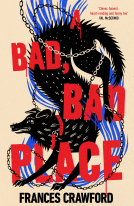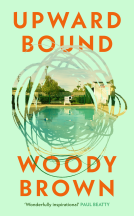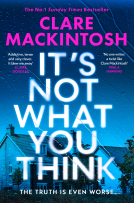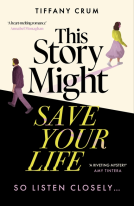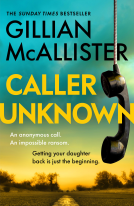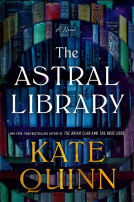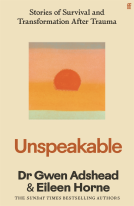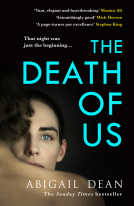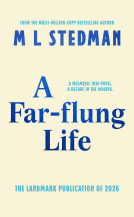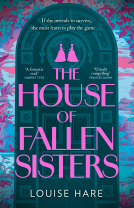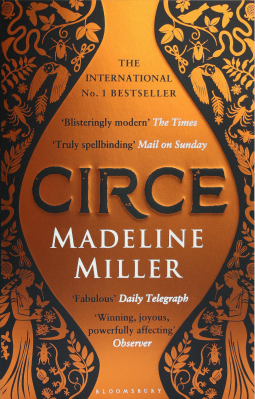
Circe
by Madeline Miller
This title was previously available on NetGalley and is now archived.
Send NetGalley books directly to your Kindle or Kindle app
1
To read on a Kindle or Kindle app, please add kindle@netgalley.com as an approved email address to receive files in your Amazon account. Click here for step-by-step instructions.
2
Also find your Kindle email address within your Amazon account, and enter it here.
Pub Date 19 Apr 2018 | Archive Date 1 Apr 2019
Description
From the Orange Prize-winning, internationally bestselling author of The Song of Achilles comes the powerful story of the mythological witch Circe, inspired by Homer’s Odyssey.
When I was born, the name for what I was did not exist.
Circe is the daughter of Helios, the sun god, and Perse, a beautiful naiad. Yet from the moment of her birth, she is an outsider in her father’s halls, where the laughter of gossiping gods resounds. Named after a hawk for her yellow eyes and strange voice, she is mocked by her siblings – until her beloved brother Aeëtes is born.
Yet after her sister Pasiphae marries King Midas of Crete, Aeëtes is whisked away to rule his own island. More isolated than ever, Circe, who has never been divine enough for her family, becomes increasingly drawn to mortals – and when she meets Glaucus, a handsome young fisherman, she is captivated. Yet gods mingle with humans, and meddle with fate, at their peril.
In Circe, Madeline Miller breathes life once more into the ancient world, with the story of an outcast who overcomes scorn and banishment to transform herself into a formidable witch. Unfolding on Circe’s wild, abundant island of Aiaia, where the hillsides are aromatic with herbs, this is a magical, intoxicating epic of family rivalry, power struggles, love and loss – and a celebration of female strength in a man’s world.
Advance Praise
Praise for The Songs of Achilles:
'A captivating retelling … It's a hard book to put down' - Donna Tartt, The Times
'The Song of Achilles is at once a scholar’s homage to The Iliad and a startlingly original work of art by an incredibly talented new novelist' - Ann Patchett
'A masterful re-telling of The Iliad, but looking at the hidden stories and the shadows beneath' - Kate Mosse, Sunday Express
'A more than worthy winner – original, passionate, inventive and uplifting' - Joanna Trollope, chair of the judges for the Orange Prize for Fiction 2012
'Only the finest of historical novelists are able to adequately convey the sheer strangeness and otherness of the past, particularly the ancient past … Remarkably fresh' - The Times
'Miller’s prose is more poetic than almost any translation of Homer … Deeply affecting' - Observer
Available Editions
| EDITION | Hardcover |
| ISBN | 9781408890080 |
| PRICE | £18.99 (GBP) |
Average rating from 66 members
Featured Reviews
 Moray L, Librarian
Moray L, Librarian
This was my first book by Madeline Miller but I have since also read The Song of Achilles and am now in awe of her storytelling. It takes something very special to take these tales that have survived for so long and been told and retold so many times and breathe new, fresh life into them without undermining the original. This is particularly true when dealing with the story of Circe, a woman who has been maligned as an archetype of female vice and depravity for thousands of years.
Miller’s characters are as extraordinarily drawn as fans of her work will expect and they are the heart and soul of the story. From Gods to humans they are so fully-realised that they can easily stand beside the more fantastic and divine elements of the myth without ever being overshadowed. Circe’s narrative voice, like Patroclus before her, is of such emotional depth and resonance. Her struggle for her identity against others who would define, and thereby control, her is a marvellous parallel for how her figure has been denigrated by Homer and those who came after him. Semi-divine she finds that she is torn between the two halves of her being and scorned and manipulated by the gods. Like Patroclus it is only when she is exiled that she begins to understand herself and makes peace with her duality, reshaping herself as a powerful sorceress whose remote island tempts many to her door. Exile is the true beginning for Circe whose power and dignity grows as she defines herself instead of looking to others. “I will not be like a bird bred in a cage,” she declares, “too dull to fly even when the door stands open. I stepped into those woods and my life began.”
From Daedalus, to Hermes, the Minotaur to Odysseus Miller surrounds the newly-whole character of Circe with a whole cast also reinvigorated from the dry, prototypes of the originals. They become more than just examples of vice and virtue and real living beings with real pains and joys regardless of divinity, deformity or bulls heads (!). It is a preoccupation with the nature of what we call humanity that drives character, narrative and Circe herself, always drawn to mortals and their trials. And while there is no great Siege of Troy to drive the action there are chapters of breathless excitement as Circe faces up to Scylla, clashes with Odysseus and presides over the birth of the Minotaur.
Circe is a triumphant addition to the pantheon of works retelling the stories of women who have been at best patronised and belittled and at worst vilified and demonised by classical storytelling. It is beautifully written, eminently readable and superbly characterised.
 Emma H, Reviewer
Emma H, Reviewer
This book blew me away.
There are many ways of judging a book: the cleverness of the plot and concept; the beauty of the prose; the depth of the characters; the emotional effect it has on you personally; the importance and relevance of the themes it addresses, to name but a few. But given that I’ve never encountered a book that’s managed to cover every single category equally without stretching itself thin, I usually try to judge a book on how well it deals with the aspects it’s chosen to focus on; in other words, the extent to which it excels at being true to itself and what it wanted to be.
And Circe is a marvel, in that respect: a book which is wholeheartedly, fiercely true to itself. This tale knows exactly what kind of atmosphere it wants to invoke, what effect it wants to have on its reader, and what story it wants to tell, and is relentless in the pursuit of those goals. The result is a book which, for all that its content is almost episodic at times, and for all its links to a thousand other legends and myths, feels absolutely self-contained, fully realised, and wholly its own entity, with each and every carefully chosen word leading the reader right to its beating heart.
Honestly, this is entirely appropriate – discovering and being true to who you are is probably one of the book’s most important themes. The inexorable passage of time, the constraints and blessings of both divinity and mortality, the challenges of parenthood, and the ways women are repressed and rise up against that repression are just some of the other themes explored in gorgeous, thoughtful detail, but it’s learning how to forge your own path in the world that is the book’s guiding current, underlying each twist and turn of the plot.
Speaking of the plot, you’d be forgiven for expecting very few surprises along the way if you’re familiar with Greek mythology, but the joy of this book comes in filling in the blank spaces, the edges, the gaps between words in the epics of yore. Madeline Miller has a talent for bringing those blank spaces to such vivid life that the stories she weaves there feel almost inevitable (fated, even!) as they unfold, with the minor tweaks and changes to the myths preventing them from ever becoming too predictable – but really, the plot is not what this book is about at all.
It’s about the characters and places and times that the plot connects. It’s about women, and their children, and their struggles to carve out a place for themselves in a world dominated by men without carving out the essence of themselves in the process. It’s about a goddess who never truly feels comfortable with her own divinity, a witch who refuses to flinch from the blood that stains her hands even as she loathes it, a woman who overcomes scorn and exile and injustice and her own uncertainty to tread an uncharted path towards her truest self. This is Circe’s story, and it is breathtaking.
However, it would be remiss of me not to note just how many other characters leave an indelible mark on these pages – including, I’m delighted to say, a whole host of other women, who are variously innocent, ambitious, conniving, vengeful, wise… in short, as diverse as the real women that populate this world. Maybe someday I’ll read a book where that doesn’t come as a breath of fresh air (and really, that day can’t come quickly enough), but for now, I’m still thrilled by the sheer number of female characters drawn in such vivid detail in this book that I could practically hear their voice as they spoke.
But of course, they would never have come to life so vibrantly without the prose. I honestly can’t recall the last time I read a book so gorgeously written, where every single line felt like a perfectly sculpted work of art. But more than simply being beautiful, the prose felt almost ancient, primordial, as though the words truly were those of a divine being recounting her own story. It overflows with power, by turns bewitching and brutal, and every description of an otherworldly god or monster (and really, at times it almost feels like a ‘who’s who’ of Greek mythology, in the best of ways – with just the right number of links to Miller’s earlier work The Song of Achilles to be meaningful but not trite) somehow makes them seem both tangibly real and terrifyingly alien. It makes for an utterly bewitching read.
There’s just one more thing I’d like to mention in this absolute behemoth of a review: the ending! I have to confess, for about 3 chapters towards the end, I was feeling distinctly grumpy. Without saying too much, there was a particular route I was fervently hoping the story would go down, and in the end, it went in a completely different direction. However, the last few pages soothed every ounce of my indignation. The very last scene in this novel is one of such completely fitting circularity that I honestly think it might be one of my favourite ways a book has ever ended. I don’t think I’ll ever stop wondering what the story might have looked like if it had taken that other route instead, but the final paragraphs of this tale were so perfect that I can’t quite begrudge not knowing. I’m content to simply have had the enormous privilege and pleasure of reading this absolutely wonderful book.
Readers who liked this book also liked:
Pirkko Saisio
Biographies & Memoirs, General Fiction (Adult), Literary Fiction
Louise Hare
Historical Fiction, Multicultural Interest, Mystery & Thrillers

